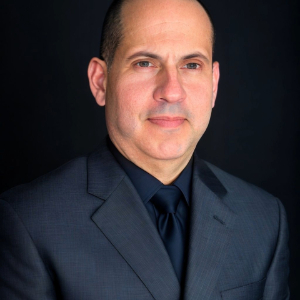
Navigating Disclosure When a Partner’s Therapist Doesn’t Acknowledge Sex Addiction
Feb 14, 2025The Challenge
One of the most difficult obstacles in sex addiction recovery is guiding a client toward full therapeutic disclosure while ensuring that the partner is prepared to receive it. Ideally, the disclosure process is trauma-informed, structured, and facilitated by trained specialists who understand both compulsive sexual behavior and betrayal trauma.
However, a major complication arises when the partner has strong rapport with a couples therapist who does not subscribe to the sex addiction model.
In these cases, the couples therapist may frame the issue in ways that create obstacles to healing:
• Focusing solely on betrayal without acknowledging compulsivity, leading to heightened blame and emotional volatility.
• Encouraging immediate and unstructured disclosure, which can retraumatize the partner.
• Downplaying the importance of addiction-specific treatment, making it difficult for the disclosing partner to follow a structured recovery plan.
This presents a serious dilemma: The partner deserves full agency in choosing whether they receive disclosure, but without proper psychoeducation, they may enter the process unprepared—increasing the risk of emotional harm, misinterpretation, or even total relationship breakdown.
Best Practices for Handling This Conflict
1. Educate the Partner Without Directly Challenging Their Therapist
• If the partner rejects the term “addiction,” alternative framings may resonate better, such as:
• Compulsivity
• Attachment wounding
• Maladaptive coping mechanisms
• Betrayal trauma concepts can also be introduced independently of addiction language to help the partner make sense of their own experience.
2. Ensure the Disclosure is Facilitated by Experts in the Field
• A couples therapist who does not understand sex addiction should not lead disclosure.
• Instead, disclosure should be guided by professionals trained in formal therapeutic disclosure (FTD).
• The partner should have the option to choose the level of detail they receive, avoiding unnecessary or retraumatizing information.
3. Provide Alternative Support for the Partner
If the partner is unwilling to see an addiction-informed therapist, consider:
• Partner-sensitive resources (e.g., APSATS-informed groups, educational materials).
• Connecting the partner with other betrayed spouses who have been through a structured disclosure process.
4. Navigate the Influence of the Couples Therapist
• Instead of directly opposing the couples therapist’s views, frame the disclosure process as a distinct and necessary step separate from ongoing couples work.
• If possible, work with the partner’s therapist to clarify the goals of structured disclosure—focusing on:
• Informed choice
• Emotional safety
• Healing rather than retribution or punishment
5. Plan for Post-Disclosure Fallout
• If the couples therapist reinforces resentment rather than resolution, the disclosing partner must be supported in setting boundaries around their influence.
• The couple’s long-term healing process should include:
• Continued therapeutic guidance
• Behavioral accountability
• Relational rebuilding strategies
The Big Picture
Successful disclosure requires more than just honesty—it requires preparation, education, and careful facilitation.
When a couples therapist dismisses the sex addiction framework, it can make an already difficult process even more complex.
The key to managing this challenge is ensuring that:
✔ The partner is informed enough to make an empowered decision.
✔ The disclosure process remains structured and safe.
✔ The influence of an uninformed couples therapist does not derail healing.
By using trauma-informed approaches, sidestepping direct conflicts with non-specialized therapists, and reinforcing the need for structured facilitation, we can ensure that disclosure is a step toward healing rather than an explosion of reactivity.
Don't miss a beat!
New moves, motivation, and classes delivered to your inbox.
We hate SPAM. We will never sell your information, for any reason.


